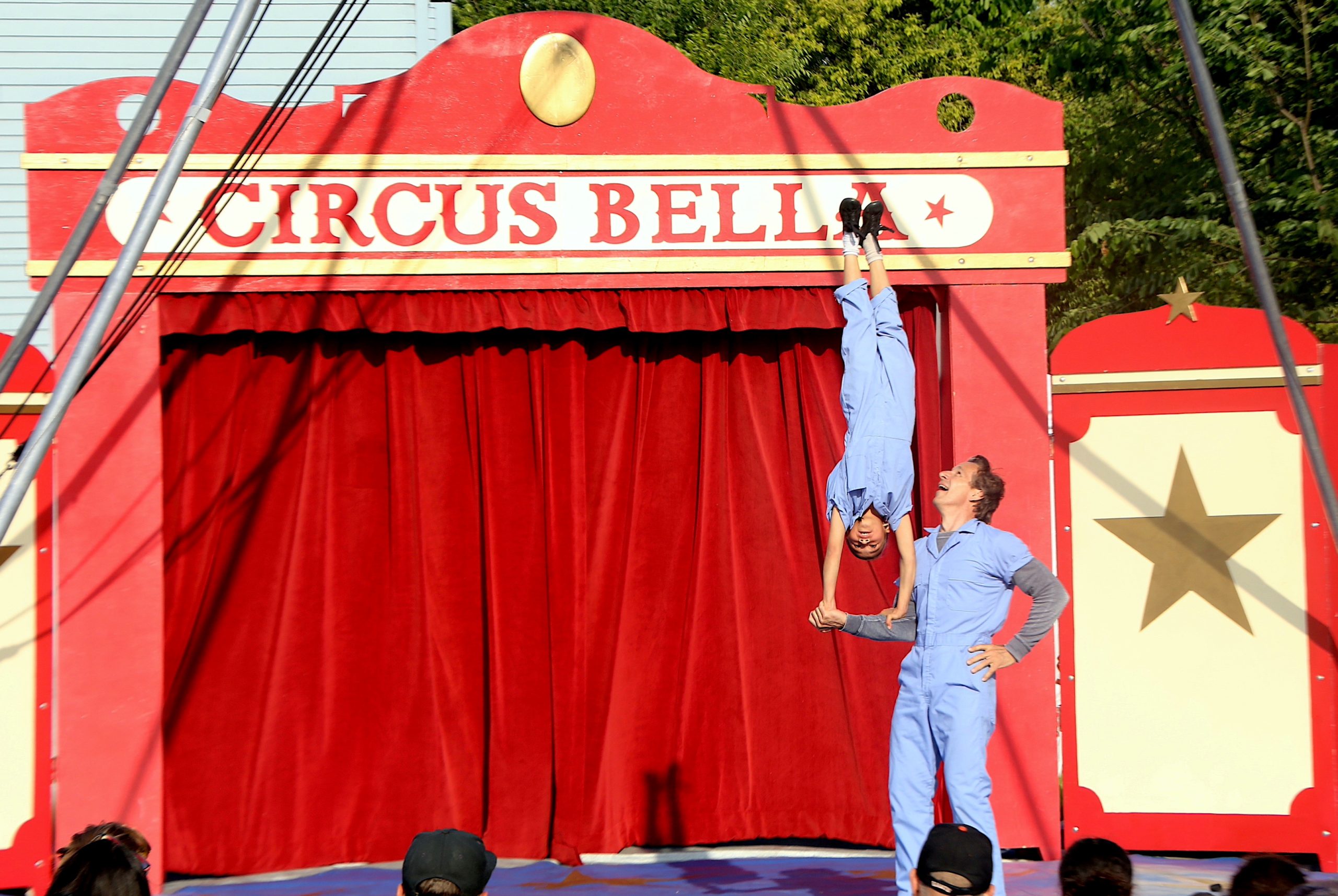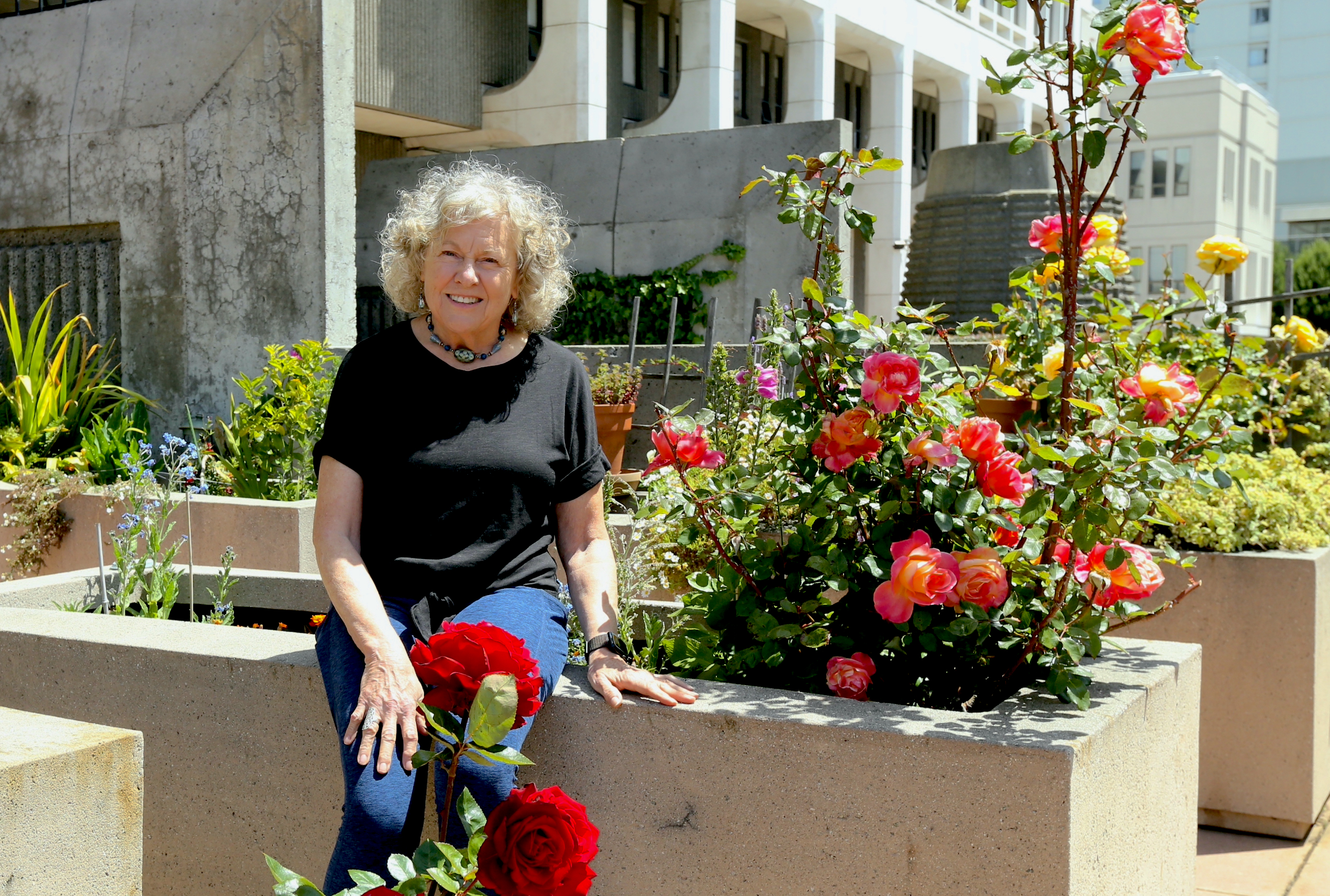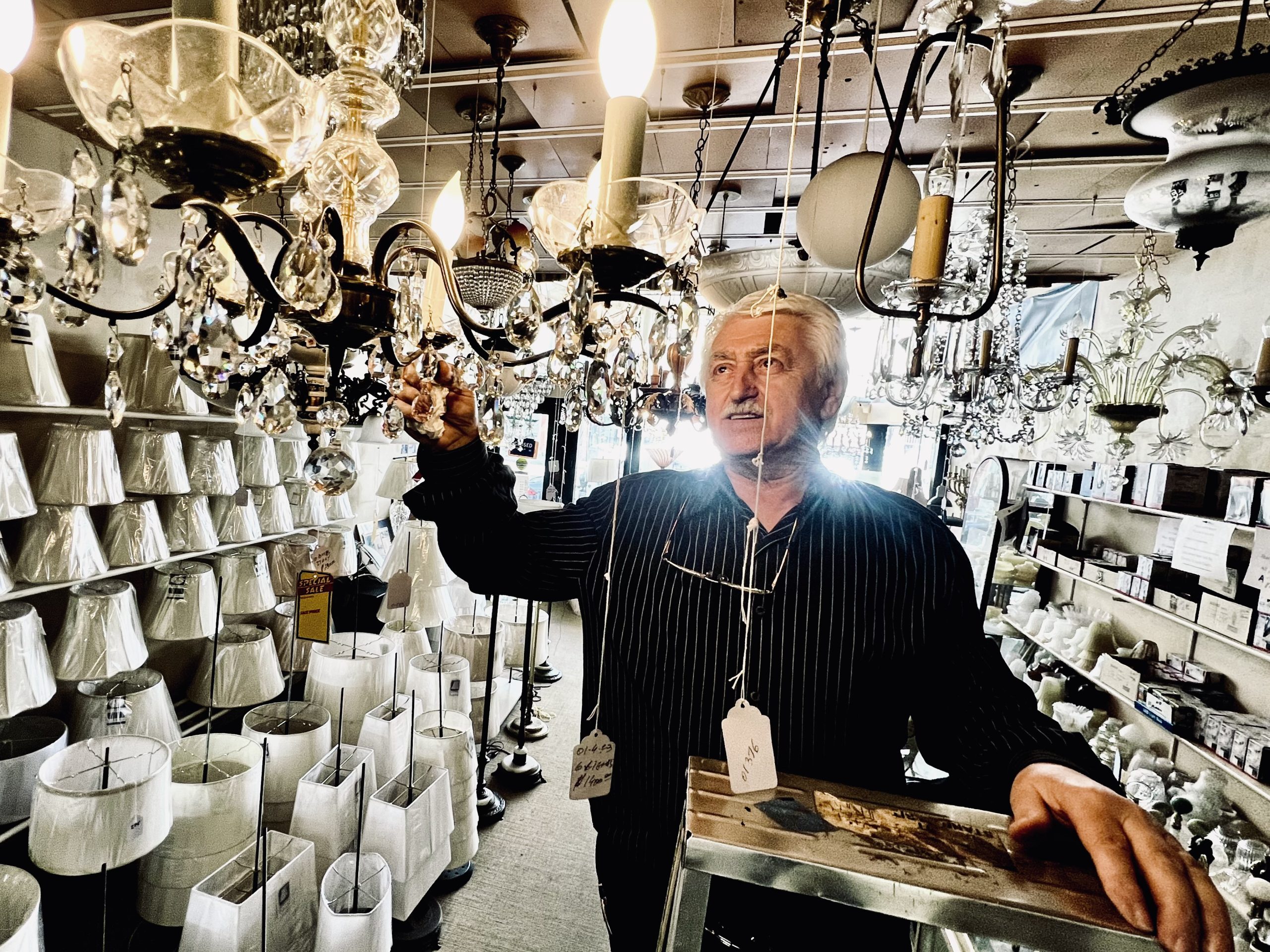Her name honors a famed New Zealand author. With her first novel published, Sally Abbott is also leading the life of a writer.
Sally Abbott believes her role as a novelist was written before she was born.
It started with her middle name: Abbott’s mother was so enamored of the renowned short-story writer Katherine Mansfield that she gave her second daughter the middle name “Mansfield.” To top it off, both Katherine and Sally were born in the same town, Wellington, New Zealand.
Abbott published “Miami in Virgo,” in 2019. It took her 15 years while working part-time. She wrote five different manuscripts, joined many groups, and went to numerous writers’ conferences with the prospect of finding an agent. She was ignored in her submittals and hardly ever received a written rejection.
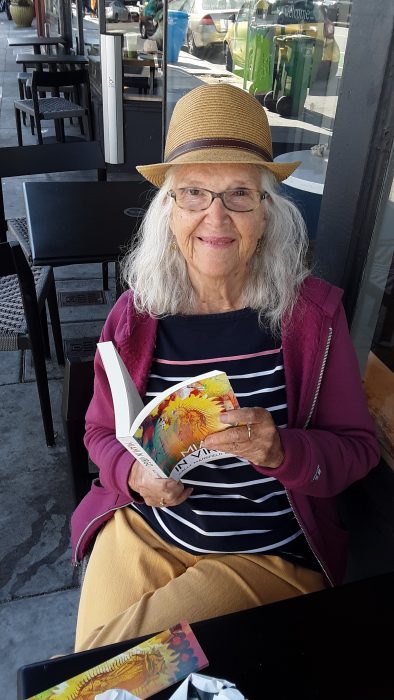
“Writing and publishing a novel proved much more arduous than I could have imagined,” said Abbott, now 76. On the advice of a friend, she decided to self-publish.
Through her mother’s enthusiasm and Mansfield’s work, Abbott “developed a strong love of books, stories, and poetry as a child.”
Like Mansfield, Abbott explores complex emotions around family and sexual and societal conventions. “Miami in Virgo” follows a young girl testing her sexuality in the 1970s while growing up fatherless and poor in a blended Central Valley family.
“My thrust to write this story was to dramatize the power of truth-telling in familial relationships,” Abbott said.
Mansfield, who lived from 1888-1923, challenged traditional family structure in her own life with her bi-sexuality. She was an early feminist.
So was Abbott’s mother, and now Abbott.
“She was a true believer in the power of birth control to save the world,” she said. As daughters of a foreign service officer in the State Department, Abbott and her sister lived with her parents in Switzerland, Burma, Thailand, and India before the family settled in Arlington, Virginia.
Feminism and pacifism
“My mother was a social worker with Planned Parenthood when we returned to the U.S.,” Abbott said. “She was a feminist, and I became quite involved in second-wave feminism when I got wind of it.”
That international experience also grounded Abbott’s pacifism.
She writes daily about the war in Gaza, she said, to Congress, President Biden, The New York Times, and university presidents. She wrote and read a poem at the celebration of Poets for Palestine in October.
At 18, in 1966, she heard the call of students protesting the Vietnam War in Berkeley. Enthralled with their idealism, she traveled to California, enrolled, and earned her undergraduate degree from the University of California in 1970.
In 1982, she got a Master of Fine Arts in creative writing from San Francisco State University. Inspired by high school English teachers who encouraged her and assigned volumes of great literature, she wanted to be a writer.
“Certainly, no other career path called out to me.”
But first, she needed to make a living. She worked off and on for nearly 20 years in civil service, one year as assistant to a documentarian and 10 years teaching creative writing, comparative literature and anthropology.
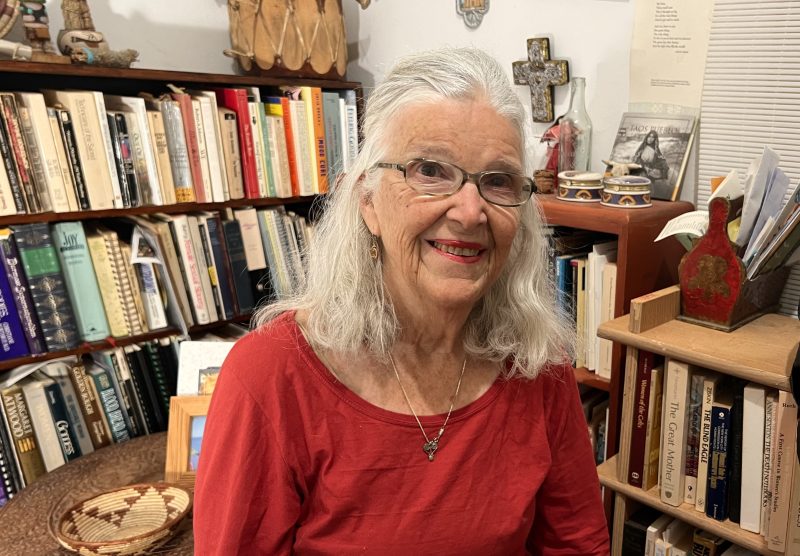
It wasn’t until 2004 that she started her book, while working for the San Francisco Municipal Transportation Agency. She retired when she finished the novel.
Abbott began her working life much as she ended it – in civil service.
Civil service and teaching
From 1974 to 1983, she interviewed claimants appealing their cases before San Francisco’s Aid to Families with Dependent Children program.
From 1983 to ’84, she was an administrative assistant to Pat Ferrero a San Francisco documentarian who made such films as “Quilts in Women’s Lives” and another on the Hopi tribe of Arizona.
“As the point person who managed the office, spliced lots of film, created flyers, handled shipping and receiving processes, and ran lots of errands, I learned a lot,” said Abbott, who called Ferrero her role model.
“While she was making documentaries, she taught humanities full-time. She was so disciplined and communicated well with everyone who worked for her.”
When the opportunity arose in 1984 to teach a University of California, Berkeley Extension course in creative writing, Abbott seized it.
That began her 10 years as an educator.
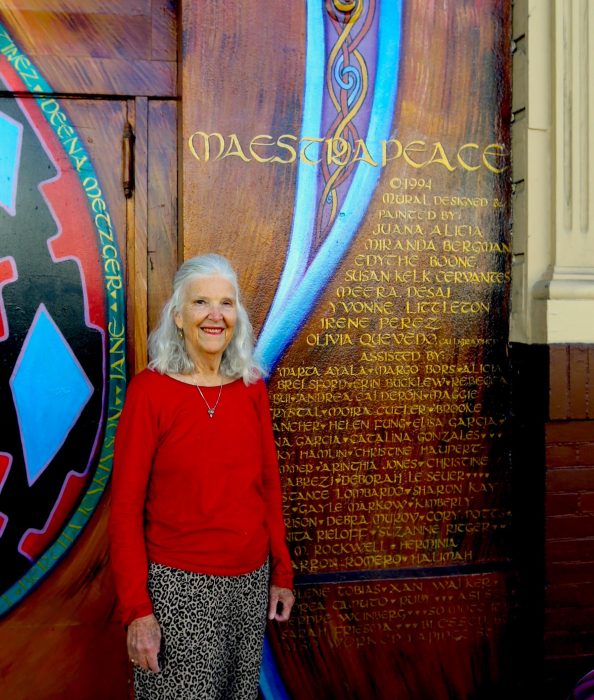
“Vision as Voice,” her course at the school’s San Francisco campus, covered the work of Joseph Campbell, a writer and professor of comparative mythology and literature. She later delved into the women’s movement and the writings of feminists.
She also served as an adjunct professor at the Women’s Studies Department at California State University, East Bay, teaching Goddess Worship in Prehistory, Virginia Woolf, and the Female Hero Journey in Contemporary Women’s Literature.
In 1987, she taught a course on spirituality at John F. Kennedy University in Orinda, California, to students pursuing a degree in psychological counseling. The job was rewarding emotionally if not financially, she said, but was laid off during a fiscal downturn. “I think I would have been happy as a university professor, but I never got a PhD.”
In 1988, she was awarded a summer writing residency at the Helene Wurlitzer Foundation in Taos, New Mexico.
Hearing people’s pain
By the early ‘90s, teaching positions were scarce, so Abbott went back to civil service. Its stability and pay were more able to support her vision. The jobs also put her in close touch with people in difficult circumstances.
In 1993, she went to work as a hearing officer for the San Francisco Municipal Transportation Agency. In that job, she met drivers trying to get their parking citations rescinded or complainants facing enormous charges after having their cars towed. It was frustrating work, she said.
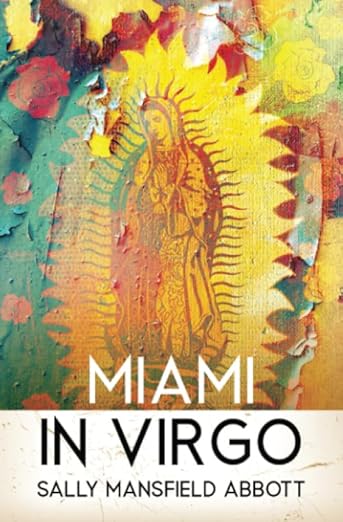
“Even if a driver had a heart attack and had to leave his or her vehicle in an illegal spot, the tow fees would not be removed,” she said. “Often, I felt conflicted when I saw the desperation on the faces of these drivers.
“Long before retiring in 2019, I soured on this job.”
As for getting older, she’s “pretty positive.
She enjoys Pilates, swimming, and hiking around the Bay Area. She visits her older sister and her kids in Switzerland when she can and travels to Sea Ranch and Big Sur when the opportunity arises.
“In sum, I feel the benefits of wisdom and emotional intelligence in my personal life as an advantage of elderhood. I get along with others better and relationships aren’t as mystifying to me as they once were. It’s no longer my first rodeo.”
Abbott, who never married and is without children, lives in the Mission District. Now that her novel is in print, she’s working to publish three poetry manuscripts and occasionally writes essays and poetry.
“I am so grateful to have a pension and to finally be retired,” she said. “I feel like I now have the kind of life I always wanted, the life of a writer.”


